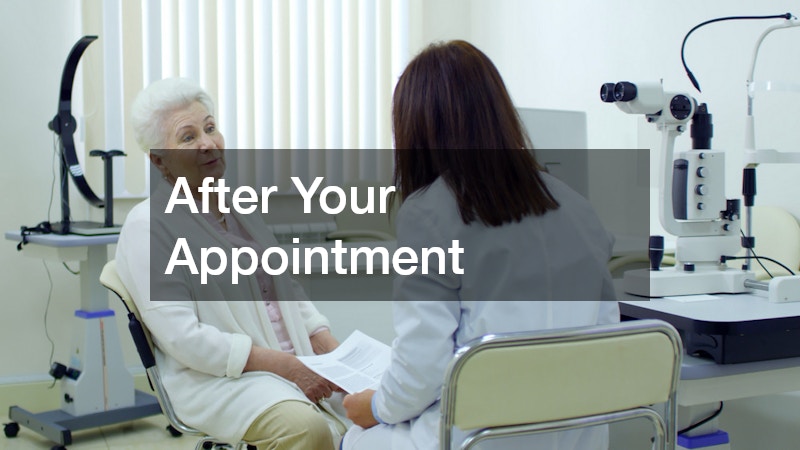Visiting eye clinics for the first time can be a daunting experience, especially if you’re unsure about what to expect. Whether you’re scheduling a routine eye exam or seeking help for a specific concern, understanding the process can ease anxiety and ensure you’re well-prepared. An appointment typically includes a series of assessments designed to evaluate your vision and eye health.
With modern equipment and professional care, you’ll receive a comprehensive evaluation tailored to your needs.
Arrival & Initial Paperwork
Upon arrival at the eye clinic, you’ll be greeted by administrative staff who will ask for your personal details and medical history. This may include information about your general health, any medications you take and previous eye conditions. If you wear glasses or contact lenses, bring them along. You’ll also be asked about any current symptoms such as blurry vision, eye strain, headaches or dryness.
Completing this paperwork accurately helps the optometrist or ophthalmologist understand any risk factors you may have, such as diabetes, high blood pressure or a family history of eye diseases like glaucoma or macular degeneration. These details play a critical role in tailoring your eye examination.
Pre-Examination Tests
Before you see the eye specialist, a trained optical assistant or technician may perform a few preliminary tests. These are quick, painless procedures designed to gather baseline data. Common tests include:
- Autorefraction and keratometry – Measures how light bends through your eyes and assesses the curvature of your cornea.
- Tonometry – Checks the pressure inside your eyes, which is important for detecting glaucoma.
- Visual acuity test – Determines how clearly you can see at different distances, often using an eye chart.
Some clinics may also conduct peripheral vision tests or use digital imaging to take detailed pictures of the inside of your eyes. These images help detect subtle changes in your eye structure and are useful for ongoing monitoring.
Consultation with the Eye Specialist
After the initial assessments, you’ll meet with the optometrist or ophthalmologist. This consultation is the core of your eye visit. The specialist will review your results, discuss any concerns you have and carry out further examinations if needed.
One of the most common procedures is the refraction test, which determines your prescription for glasses or contact lenses. You’ll be asked to look through a phoropter — a device with multiple lenses—and provide feedback on which lens combinations offer the clearest vision.
The specialist will also examine the health of your eyes using a slit lamp, a microscope with a bright light. This allows close inspection of the front and back of the eyes, including the cornea, iris, lens, retina and optic nerve.
Pupil Dilation
Depending on your condition, the specialist may use eye drops to dilate your pupils. This widens the pupils, making it easier to examine the inner structures of the eyes. While the process is painless, it can cause light sensitivity and blurry vision for a few hours afterwards. Sunglasses are recommended after dilation, especially if you’re heading outdoors.
Diagnosis & Recommendations
Once all examinations are complete, the eye specialists will explain the findings. If you need corrective lenses, they’ll provide a prescription. If an eye condition is diagnosed, such as dry eye syndrome, cataracts or age-related macular degeneration, they’ll discuss treatment options, which may include medication, eye drops, lifestyle changes or referral to a specialist.
The practitioner may also offer advice on general eye care, such as how often to take breaks from screens, the importance of UV protection and nutritional recommendations for eye health.
After Your Appointment

Following your visit, you may receive printed or digital results, especially if imaging or diagnostic scans were conducted. These records are helpful for future comparisons and monitoring. If you’re prescribed glasses or contact lenses, you may be directed to an optical dispenser on-site, where you can choose frames and discuss lens options.
For ongoing care, your eye specialist will recommend how frequently you should return for check-ups. Adults with no major eye issues generally need a comprehensive eye exam every two years, while those with existing conditions may require more frequent visits.
A visit to the eye clinic is a proactive step towards preserving your vision and overall eye health. Far from being intimidating, it’s a structured and informative process led by professionals committed to your well-being. Whether you’re experiencing vision changes or simply due for a routine check-up, knowing what to expect helps you feel more confident and prepared.
Regular eye appointments not only ensure you see clearly but also enable early detection of serious conditions that may otherwise go unnoticed. By making eye care a priority, you’re investing in one of your most vital senses for life.